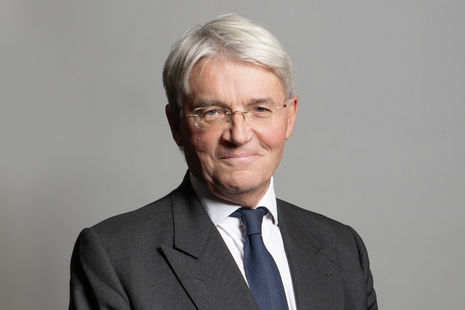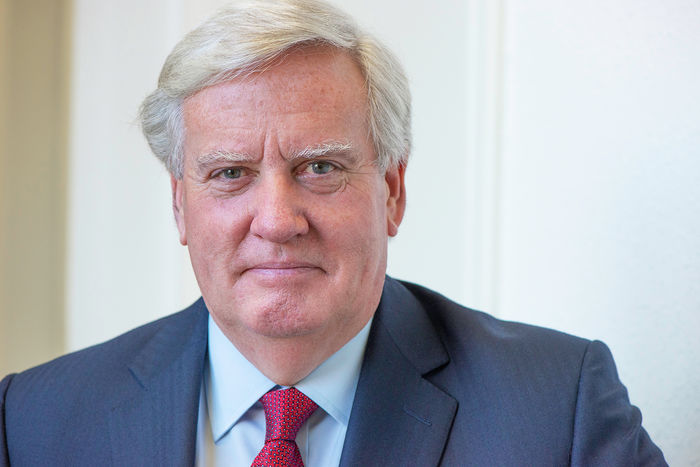Andrew Mitchell on the government’s cuts to the aid budget
The MP discusses aid budget cuts and his links to the Rwandan government with Robbie Kalus

There is a peculiar force at play on both sides of the Atlantic. Enemies are becoming friends. Villains are being vindicated as heroes. Its name? The Mitt Romney effect. In the era of Trump, George Bush is as benign as Buddha and Mitt Romney is half a miracle away from Mother Theresa. But this is no Mormon magic, it is simply the age-old result of the relative.
Andrew Mitchell is just the latest example of this phenomenon. Once lambasted by the left as a policeman-hating, benefit-cutting, Boris-boosting backbencher, Mitchell has found a place in the hearts of Guardian groupies everywhere with his principled stand against the government’s cut to the foreign aid budget.
I start by asking Mitchell precisely what the government’s decision to reduce aid to 0.5% of GDP means for the world’s poorest? Not only does the decision ‘mean a colossal loss of prestige in the one area where Britain was a superpower’, it has devilish effects for those on the ground. ’You are literally removing the food from the mouths of starving children in Yemen, Mitchell laments, adding that we’ve seen a ‘75% cut in the money used to eradicate landmines, that even today blow off the limbs of children’.
‘We’ve seen a 75% cut in the money used to eradicate landmines, that even today blow off the limbs of children.’
Mitchell’s criticism is notable in its measure. There is no name calling, no moral condemnation of his opponents. But his words sting. ‘Where has your leadership gone?’ he asks of the prime minister, noting how the decision to cut aid has seriously impaled Britain’s ability to encourage other nations to increase spending on aid and climate change in the run up to COP26. ‘You can’t lead from the back!’
Quite what persuaded so many of Mitchell’s colleagues to back the government is unclear. After all, whipping, like stripping, is best done in private. But Mitchell’s focus isn’t on those who toed the line. ‘Let’s look at the 26 colleagues who said no to the government. The 26 who stood by the poorest in the world and stood by the manifesto. We should salute their courage.’
Forget colleagues, what does it say about Mitchell’s own judgement? After all, he supported Johnson in the 2019 leadership election. The former development secretary remains diplomatic, suggesting that the prime minister ‘simply changed his mind’ about the aid budget. I press Mitchell. After all, this is the same argument he used last year after Johnson broke his promise not to dissolve the Department for International Development. ‘Vaporise the department!’, Mitchell interjects. His intonation says everything.
Given the prime minister’s penchant for ‘changing his mind’, I wonder what Mitchell makes of the governments promise to reinstate the 0.7% if the Treasury’s caveats and provisos are met? ‘Well, I think the deal that persuaded a number of my colleagues to support the government on this was a fiscal trap for the unwary.’ He considers the likes of Andrea Leadsom ‘unwary’. ‘I don’t think Mrs Leadsom was ever a very strong supporter of the development budget, but she is an extremely accomplished and able politician.’
Many, including Mr Speaker, have suggested that this government is riding rough shot over the back benches, does Mitchell agree? ‘Power has moved too much to the executive from the legislature. Remember that in this country we’ve fought wars over that. A king abused parliament and parliament cut his head off. So, if you ask me if the power of the executive has been increasing and ought to diminished, then I would say yes!’ Later in our conversation, Mitchell draws a comparison between the power of Johnson’s huge majority and the power of Henry VIII. Bad news for parliament? Of course! But Jesus Christ, I reckon someone better warn Carrie.
‘Power has moved too much to the executive from the legislature. Remember that in this country we’ve fought wars over that.’
Mitchell has recently returned to Cambridge as a visiting fellow at Jesus, a college whose links to the Chinese government face increasing scrutiny. I ask if he’s comfortable working alongside the likes of Peter Nolan, a Jesus don who stated that ‘it is not the case that there is a correct, homogeneous view about what is happening in Xinjiang’. ‘Nolan’s long-standing support for the Chinese administration is well known, and academic freedom means he is perfectly entitled to say what he thinks’, Mitchell insists, PR mode engaged. A senior source at Jesus College has told this publication that much of the fellowship is increasingly uncomfortable with Nolan’s presence at the college. Mitchell remarks that ‘Peter Nolan’s relationship with the fellowship is entirely a matter for him and the fellowship and I wouldn’t dream of commenting!’ When commenting on the matter for Varsity, however, Jesus college stated ‘Professor Nolan did not say that he discouraged conversations on Uyghur human rights. An accurate description would be that Prof Nolan emphasised the challenges of organising debates on contentious topics in a way that supports balanced discussion, as part of a discussion about future events put on by the China Centre he directs.’
Mitchell himself is not shy of controversial links with illiberal states. His political and economic relationship with Rwanda is well known. I read Mitchell a memo from the US State Department, charging the Rwandan government with “unlawful or arbitrary killings by the government; forced disappearance by the government […] and torture”. Not only is this a ‘highly partial view’, but a ‘pejorative, colourful and inaccurate’ description of the Kagame government. Mitchell praises the economic transformation seen in Rwanda this century, and hails the safer streets brought in its wake. ‘The first human right is security’, Mitchell claims. I wonder what the family of Kizito Mihigo would make of Mitchell’s assertions.

Christopher Greenwood: “My experience of government is that they normally bend over backwards to take the right decision”
Who then is Andrew Mitchell? His contempt for the government’s aid policy is undeniable, his contempt for our prime minister even stronger. Why then doesn’t he make a louder noise? Call for people to resign? He tells me that for his last ten years in parliament, he wants to make a difference, to rock the boat when it matters. ‘How stupid would I be to keep my fingers crossed, to stay silent, and suck up to the machinery of government in the hope of a position or honour that may never come?’.
Mitchell’s ministerial career came to an abrupt halt, and the desire to make a final significant mark on politics must be strong. He is a former chief whip lying in wait. Scheming. Plotting. Holding his fire until the moment in the tearoom is just right. Mitchell maintains he has never written to the Chair of the 1922 Committee, calling for a Conservative leader to go. Wouldn’t it be ironic if Boris Johnson — the man he helped become an MP, and then propelled to Tory leader — were his first victim? Maybe. Maybe not. Whoever Mitchell is, he will always be the man who called a policeman a pleb. Well, maybe.
Andrew Mitchell’s ‘Beyond a Fringe: Tales from a Reformed Establishment Lackey’ is published by Biteback (£20)
Varsity’s conversation with Andrew Mitchell took place the day before the Chancellor’s revisions to the government’s aid targets in the Autumn Budget.
Corrections were made on 17/11 from ‘Peter Nolan, a Jesus don that denies the existence of a genocide in Xiajiang’ to ‘Peter Nolan, a Jesus don who stated that ‘it is not the case that there is a correct, homogeneous view about what is happening in Xinjiang’.’ Comments from Jesus college were added.
 Comment / Plastic pubs: the problem with Cambridge alehouses 5 January 2026
Comment / Plastic pubs: the problem with Cambridge alehouses 5 January 2026 News / Cambridge businesses concerned infrastructure delays will hurt growth5 January 2026
News / Cambridge businesses concerned infrastructure delays will hurt growth5 January 2026 News / New movement ‘Cambridge is Chopped’ launched to fight against hate crime7 January 2026
News / New movement ‘Cambridge is Chopped’ launched to fight against hate crime7 January 2026 News / Uni-linked firms rank among Cambridgeshire’s largest7 January 2026
News / Uni-linked firms rank among Cambridgeshire’s largest7 January 2026 News / AstraZeneca sues for £32 million over faulty construction at Cambridge Campus31 December 2025
News / AstraZeneca sues for £32 million over faulty construction at Cambridge Campus31 December 2025








